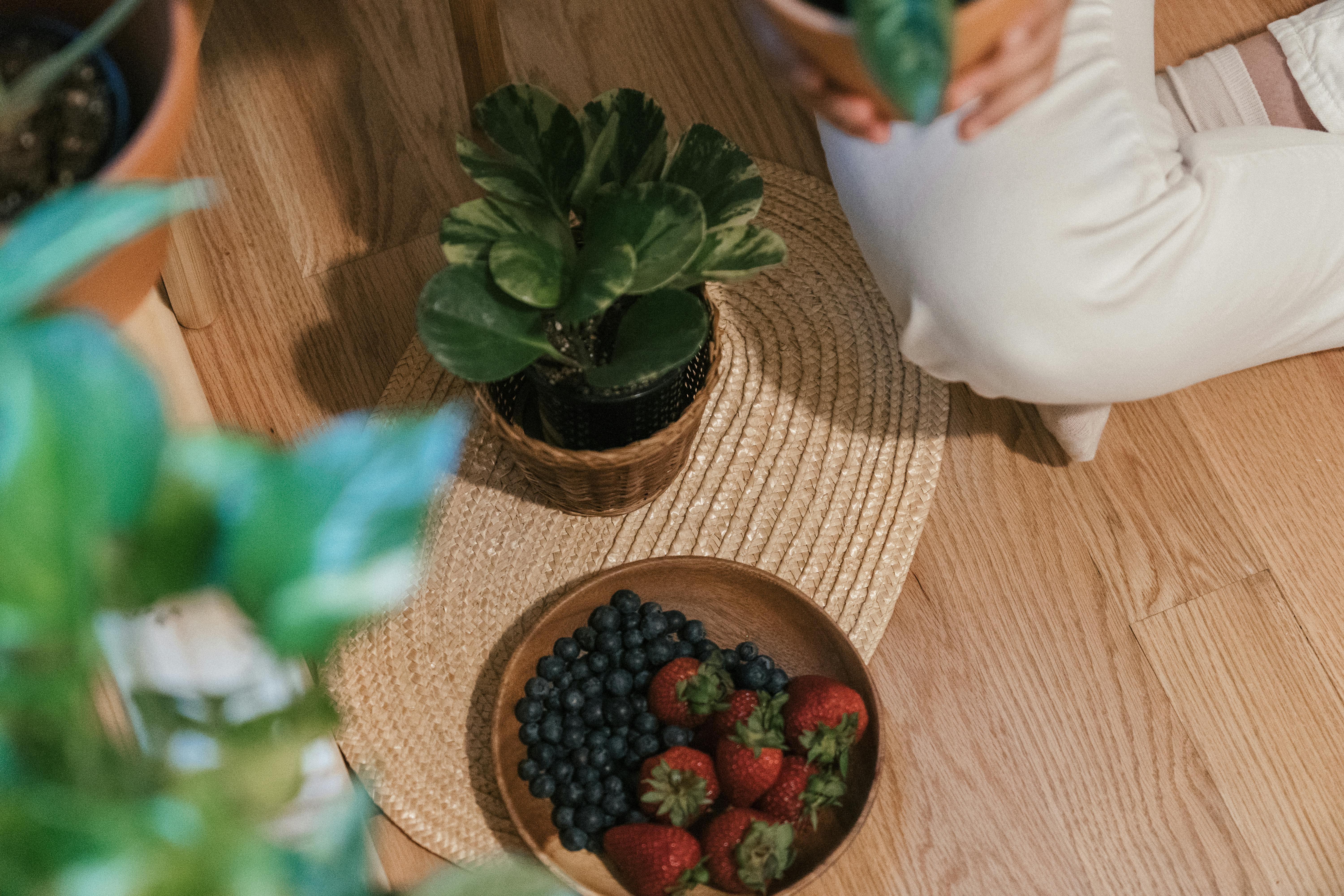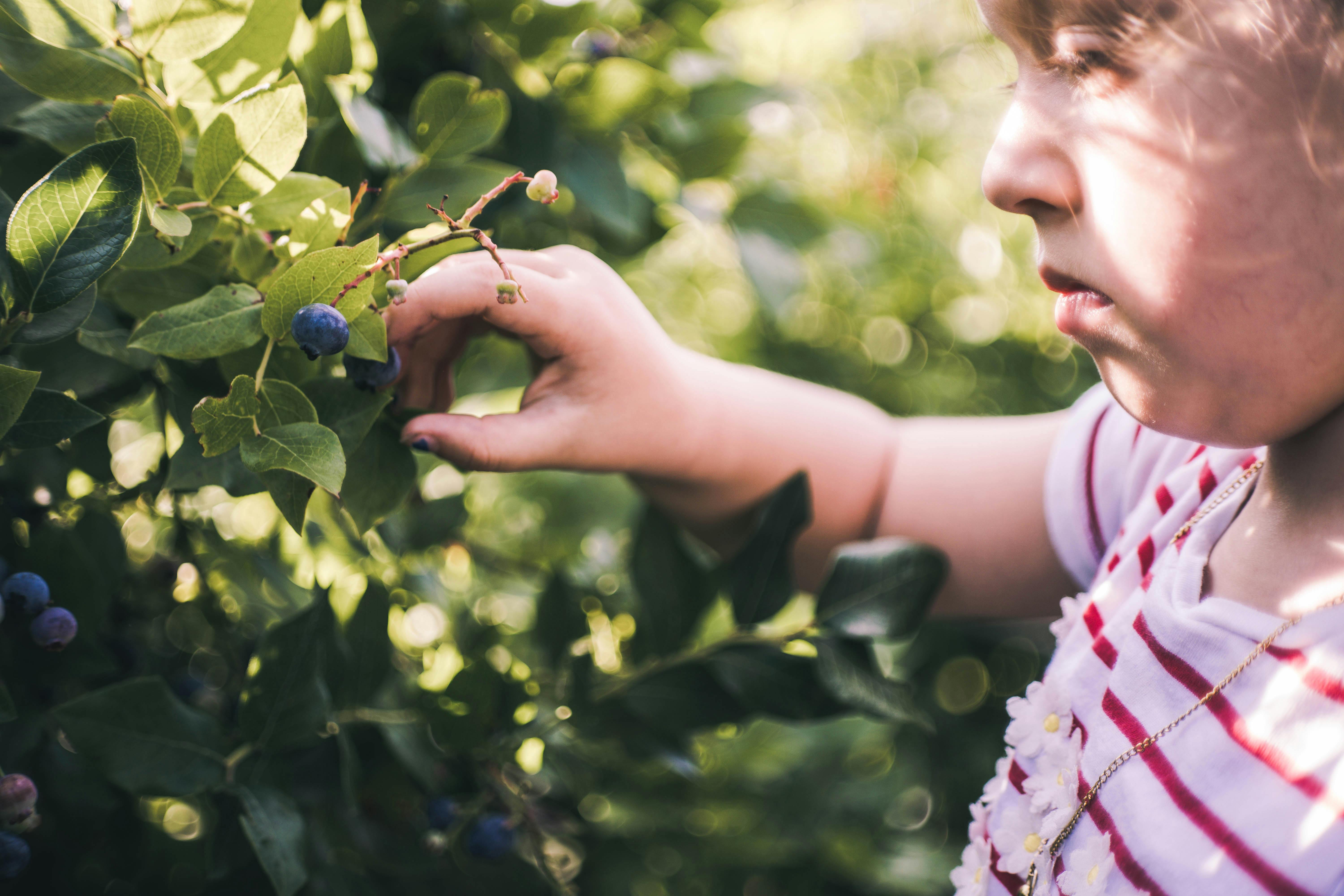Blueberries are one of the most popular fruits around, but they require special care due to their unique growing requirements. To ensure that your blueberry bushes thrive, it’s important to know what not to plant with them. Certain plants can inhibit the growth of blueberries or compete with them for nutrients and space, so it’s important to plan ahead and avoid planting these together. In this article, we will discuss what not to plant with blueberries to ensure that your blueberry crop is successful.When planting near blueberries, it is important to avoid certain plants that are known to have a negative impact on blueberry growth. These include species such as black raspberries, tomatoes, potatoes, eggplant, peppers, and other members of the nightshade family. Additionally, avoid planting tall trees and shrubs with dense canopies around blueberry bushes as these can block out sunlight and air circulation. Finally, make sure to keep any grasses or weeds from encroaching on the area near blueberry bushes as these can create competition for water and nutrients.
Vegetable Varieties to Avoid Growing With Blueberries
Growing blueberries can be a rewarding experience, but it’s important to make sure that whatever other plants you’re growing alongside them are compatible. Some vegetables, particularly nightshades like potatoes, tomatoes, and peppers, are known to be problematic for blueberry yields. These vegetables can reduce the nutrient uptake of the blueberry bushes, which in turn affects their growth and production.
In addition to avoiding nightshades, it’s best to avoid growing cabbage family plants—like broccoli, kale, and cauliflower—near blueberry bushes. The cabbage family is known for having an expansive root system that can compete with the blueberry shrubs for nutrients in the soil. This competition can weaken the blueberry bushes and reduce their overall yield.
Beans are another vegetable variety that should be avoided when planting near blueberries. Beans typically require a lot of nitrogen from the soil to thrive and produce a large yield. Unfortunately, nitrogen is one of the key nutrients needed by blueberries as well. If beans are planted too close to blueberry bushes, they can deplete the nitrogen in the soil faster than it can be replenished by fertilizers or other natural means.
Finally, root vegetables like carrots and parsnips should also be kept away from blueberry bushes. The deep roots of these plants can reach into areas of the soil where valuable minerals and nutrients are stored. If these nutrients are taken up by non-blueberry plants, it could significantly impact the wellbeing of your shrubs over time.
Taking all of this into consideration is important if you want your blueberries to thrive! Remember: nightshades like potatoes and tomatoes should always be avoided when planting near blueberry bushes; similarly cabbage family vegetables like broccoli or cauliflower should also not be planted nearby as they have expansive root systems that could compete with those of your shrubs for essential nutrients in the soil; beans require a lot of nitrogen from the soil which could deplete what’s available for your shrubs; finally root vegetables like carrots or parsnips should also not be planted near them as their deep roots could reach areas where valuable minerals and nutrients are stored that would otherwise go towards nourishing your shrubs!
Common Weeds to Keep Away From Blueberries
Blueberries are a delicious and healthful addition to any garden. However, they can be quickly overrun by weeds if left unchecked. Common weeds that can be found near blueberry bushes include dandelions, thistles, wild onions, and grasses. These weeds compete for resources such as water, sunlight, and nutrients that the blueberry plants need to thrive. To ensure a bountiful harvest of sweet and juicy berries each season, it is important to keep these pesky plants away from your blueberry bushes.
One way to do this is by removing the weeds manually with a hoe or rake before they have a chance to reproduce. This should be done several times throughout the growing season to ensure that there are no new seeds germinating near the blueberries. If the weeds have already gone to seed, it is best to pull them up by hand or use an herbicide that is specifically formulated for controlling these types of weeds.
Mulching around the base of your blueberry bushes can also help keep away common weeds. This will create a barrier between the soil and the weeds so that they cannot take root in the area around your plants. Additionally, mulching will help retain moisture in the soil which will benefit your blueberry plants and help them thrive even more!
Finally, keeping up with regular maintenance such as fertilizing and pruning will also help ensure healthy growth for your blueberry bushes and reduce weed pressure in the area. Taking these steps will create an environment where your blueberries can flourish while keeping those pesky weeds at bay!
Reasons Not to Plant Certain Plants Near Blueberries
Planting certain plants too close to blueberries can be detrimental to the health of the blueberry bushes. The roots of some plants can damage the root systems of blueberry bushes, and some plants can also compete with blueberry bushes for resources such as water and nutrients. Additionally, certain plants can attract pests and diseases that can be harmful to blueberries. When planting around blueberry bushes, it is important to avoid planting any of the following:
Trees – Planting trees too close to blueberry bushes will shade out the blueberries and will eventually damage the root systems of both plants.
Vegetables – Vegetables planted near blueberry bushes will compete with them for resources such as water and soil nutrition.
Perennial Weeds – These weeds are difficult to get rid of once established and often spread quickly, so it is important to avoid planting them near blueberry bushes.
Roses – These flowers attract Rose Chafers, which feed on the leaves of blueberry bushes and can damage them significantly.
Herbs – Some herbs like mint or catnip have aggressive roots that can damage the root systems of nearby blueberry bushes, leading to stunted growth or death in extreme cases.

Trees and Shrubs That Should Not Be Planted With Blueberries
Blueberry bushes are great additions to the garden, but they can be easily overwhelmed by other plants. It is important to choose companion plants that will not compete with the blueberries for water, light, or nutrients. Avoid planting trees or shrubs that are too large and aggressive when growing blueberry plants. Trees and shrubs such as walnuts, chestnuts, oaks, maples, poplars, hickories, and willows should not be planted near blueberries as they have strong root systems that can quickly take over the soil and deprive the blueberry bushes of their essential resources.
In addition to large trees and shrubs, it is also important to avoid planting certain vegetables in close proximity to blueberry bushes. Vegetables that should not be planted near blueberries include tomatoes, peppers, potatoes, eggplants, squash, cucumbers and corn. These plants are very aggressive growers and can easily outcompete the blueberry bushes for light and nutrients.
Finally, it is important to avoid planting certain herbs near blueberries as well. Herbs such as mints (including peppermint), oregano, basil and thyme can spread rapidly through runners and rob the surrounding soil of its resources. It is best to keep these herbs in a separate area of the garden away from other fruits and vegetables.
In summary, it is important to choose companion plants carefully when growing blueberry bushes in order to avoid competition for light and nutrients. Large trees and shrubs such as walnuts or oaks should not be planted near them due to their strong root systems. In addition, certain vegetables (tomatoes, peppers) and herbs (mints) should also be avoided when choosing companion plants for blueberries. By following these guidelines you can ensure your blueberry bushes receive all of the necessary sunlight and nutrients they need in order to thrive in your garden!
Herb Varieties That Should Not Be Planted Together With Blueberries
Blueberries are an incredibly versatile and nutritious fruit. Unfortunately, they can be vulnerable to certain pests and diseases if planted with the wrong companion plants. As such, it is important to be aware of which herb varieties should not be planted together with blueberries. Some of the most common herbs to avoid planting near blueberries include mint, cilantro, oregano, and basil.
Mint is a particularly troublesome herb when it comes to blueberry cultivation. It tends to spread quickly and can smother other plants in its path, including blueberries. Cilantro is another herb that can quickly overwhelm nearby plants with its rapid growth rate. Oregano is a mild invader of other plants’ roots and should be kept away from blueberry bushes. Finally, basil has been known to attract certain pests that could potentially damage the neighboring blueberry shrubs.
When planning a home garden, it is important to take into account which herb varieties should not be planted together with blueberries. Mint, cilantro, oregano, and basil are all herbs that have the potential to cause damage or invite pests when grown in close proximity to blueberry bushes. By keeping these herbs away from the berry plants, gardeners can ensure their blueberry crop remains healthy and abundant for years to come!
Possible Problems Associated with Planting Other Species Near Blueberries
Planting other species near blueberry bushes can cause a variety of problems. The most common issue is competition for resources. Blueberries require large amounts of water and nutrients, and other plants can compete for these resources, limiting the amount available to the blueberry plants. This could lead to stunted growth, lower yields, and poor fruit quality. Additionally, some species can introduce diseases or pests into the area that may not affect them but could harm the blueberry plants.
In addition to competition for resources and potential disease issues, planting other species near blueberries can also create issues with shading. Blueberry plants need full sun exposure in order to produce high-quality fruits. If other plants are planted too close, they may shade out the blueberries leading to decreased yields and poor fruit quality. Finally, planting other species near blueberry bushes can create issues with cross-pollination that could lead to hybridization of the crop.
For these reasons, it is important to be aware of any potential risks associated with planting other species near blueberries before doing so. It is important to do research on any potential plantings and make sure they will not adversely affect the health of your blueberry bushes or their yields.

Conclusion
Blueberries are a relatively easy plant to grow in the home garden. However, it is important to remember what not to plant with them. Planting blueberries with other berries, such as raspberries and blackberries, can lead to cross-pollination and the production of hybrid berries. Additionally, avoid planting blueberries with plants that require more water than they do, such as rhododendrons and azaleas. Lastly, be aware of plants that may have a toxic effect on blueberry bushes, such as yew shrubs and certain grasses. By following these guidelines when planting near or around blueberry bushes, gardeners can ensure that their berries will thrive for many years.
Overall, while there are many plants that should not be planted with blueberries due to their different water requirements and cross-pollination possibilities, there are equally as many companion plants which can help support healthy berry production. By making sure to properly research what should or should not be planted with blueberries before starting a garden project, growers can ensure that their berry bushes will thrive for years to come.

